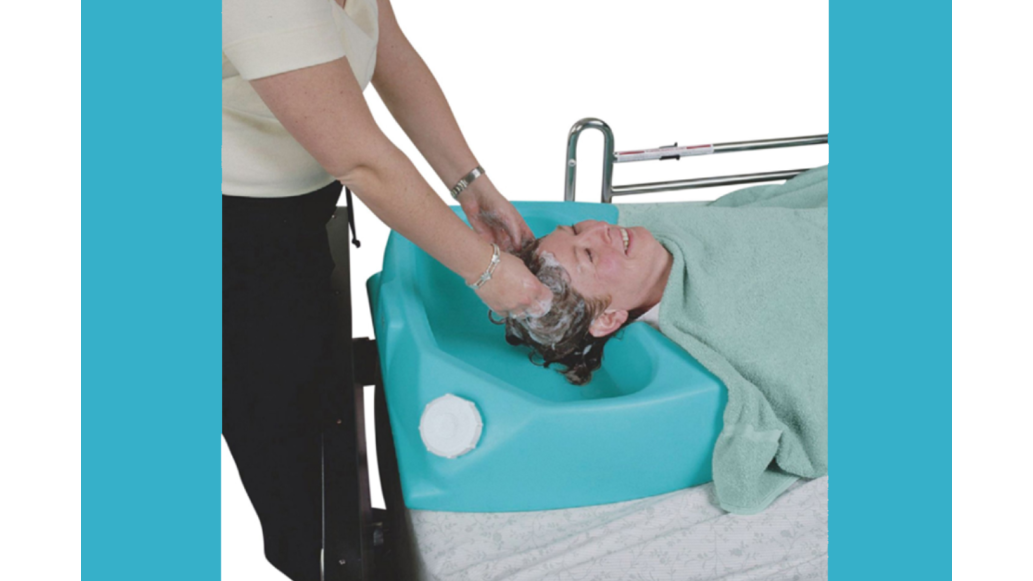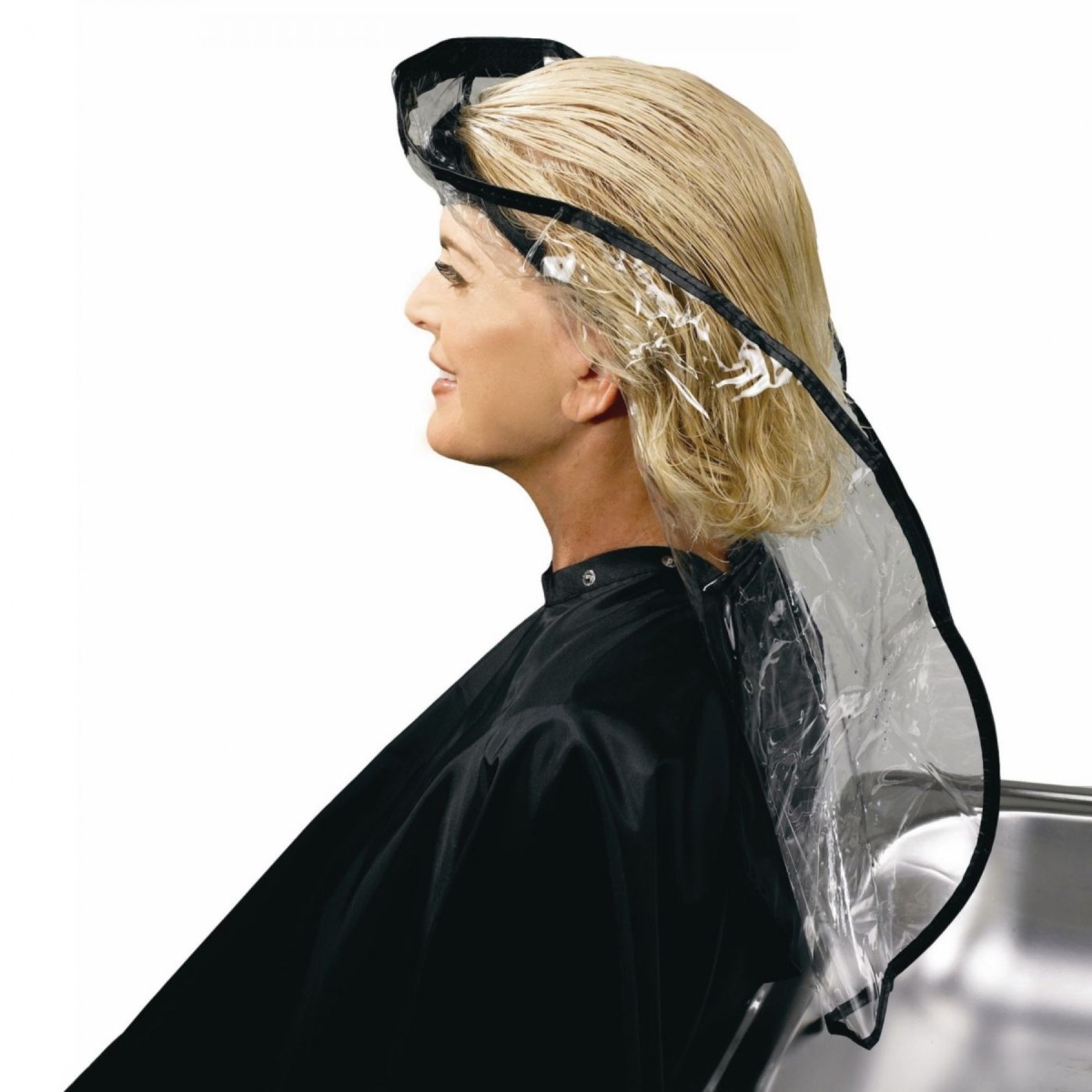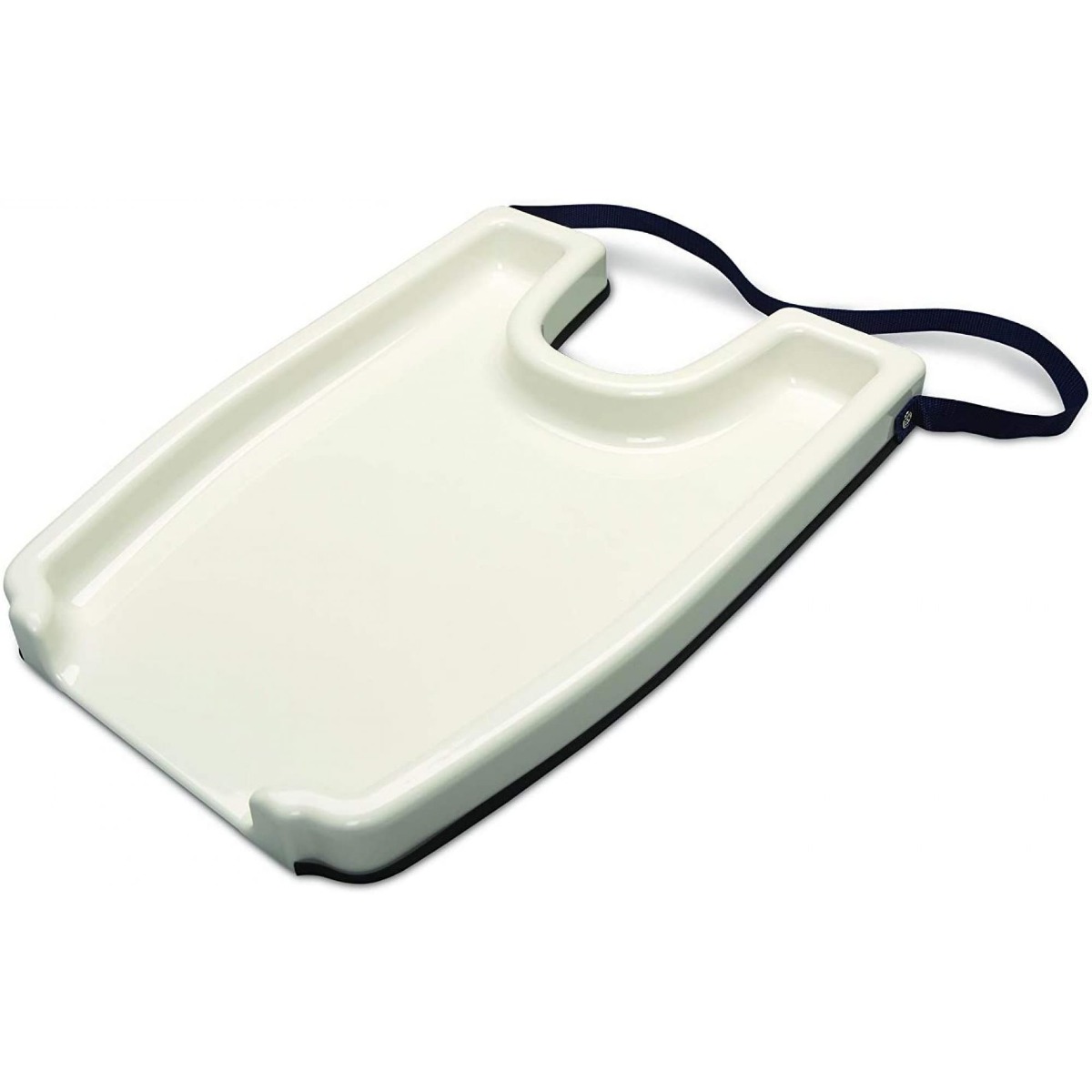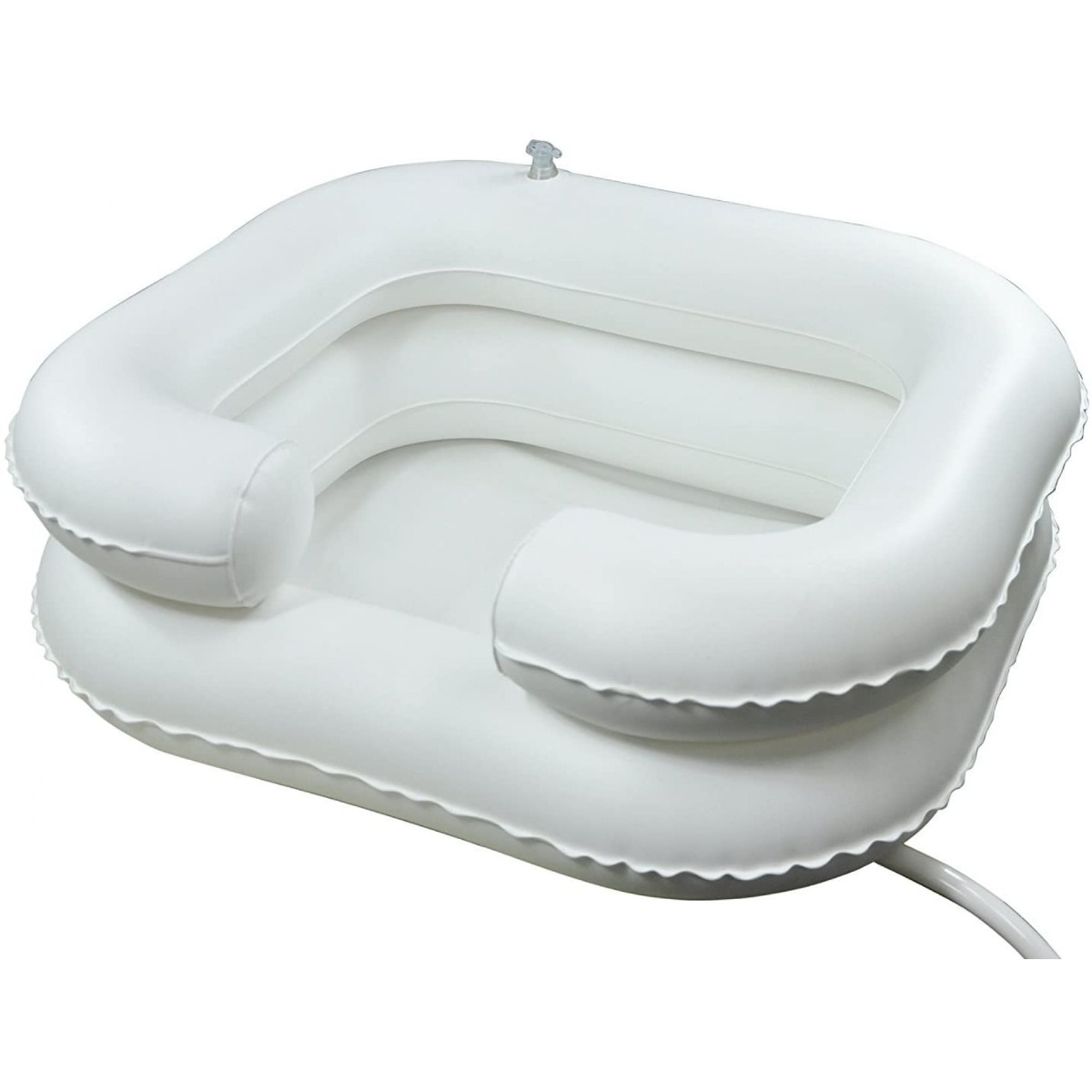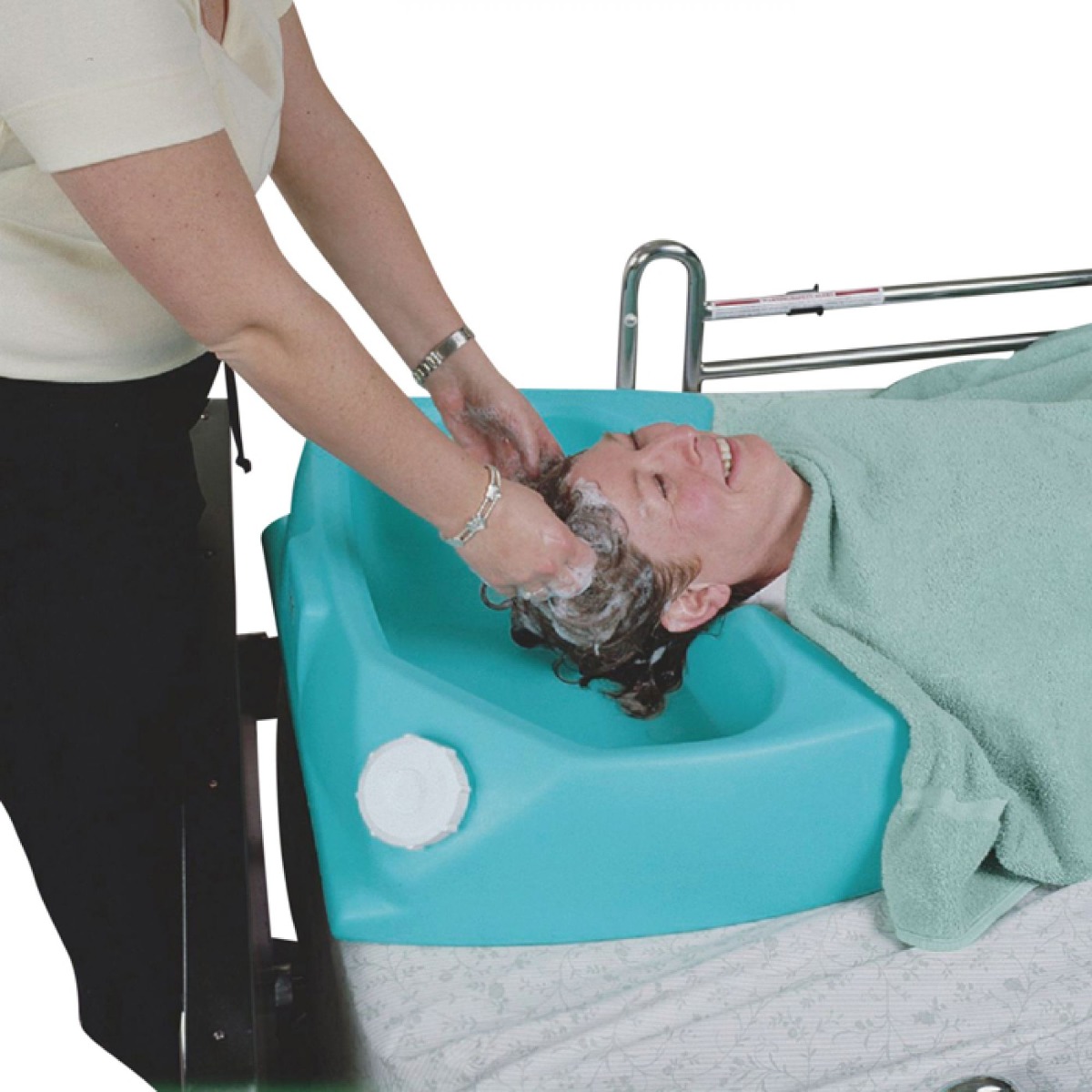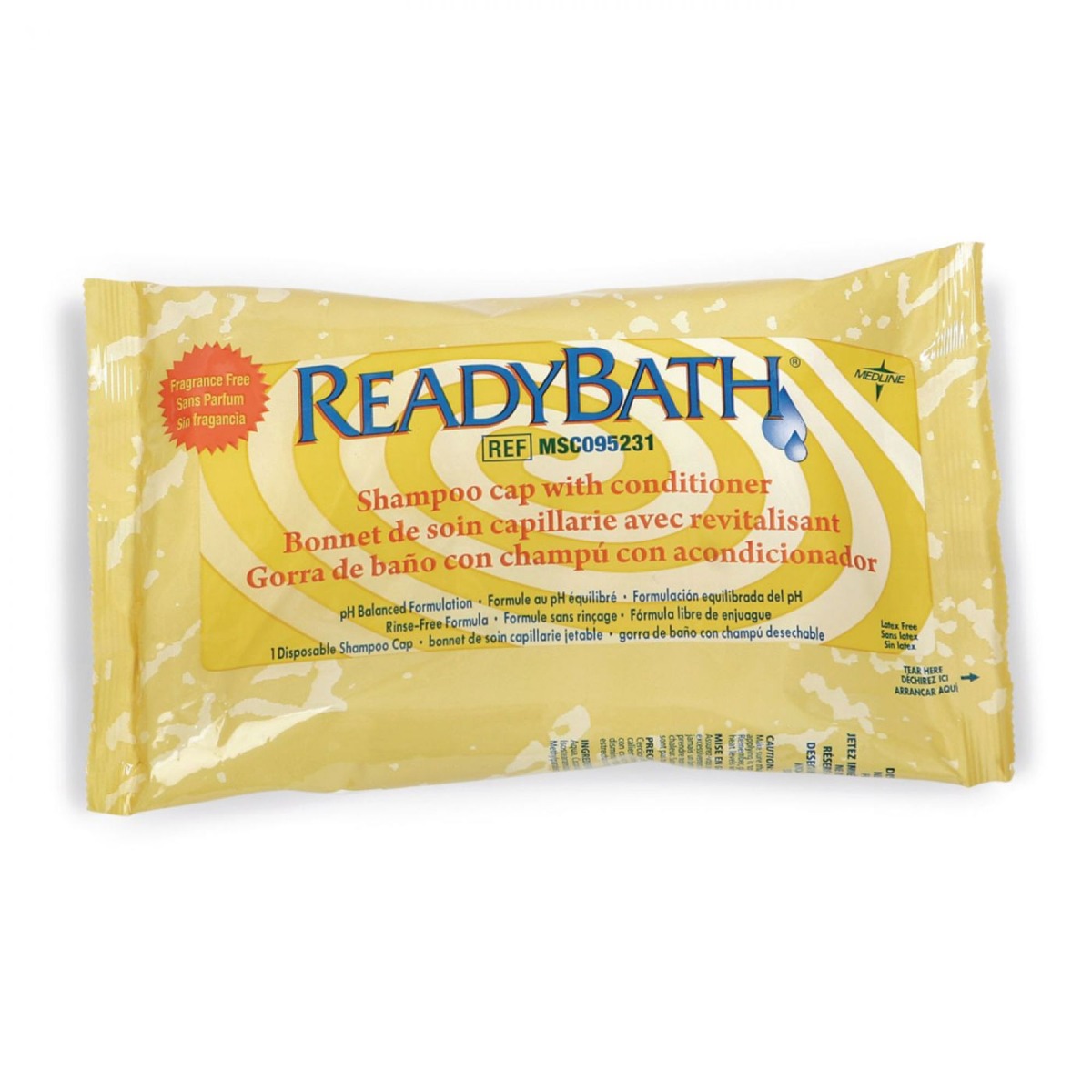Shampooing a patient's hair who is immobilized or who uses a wheelchair can be a tricky task. Still, it is a vital step in caring for a patient. Not only is it critical for hygiene, but hair care, style, and condition often are parts of people’s identity. Therefore, hair care can give immobilized patients a renewed sense of independence and self.
These tools make it easier for you to wash your patients’ hair!
Choosing a Shampoo Procedure
Before beginning a shampoo treatment, there are factors you need to consider. The first step is to consider all the available options you have to shampoo your patient. There are plenty of different options.
Funnels or washing trays make it easier to wash your patient’s hair in the sink. They are ideal if the patient can be transferred to a wheelchair but can’t tip their head back or be reclined. Plastic or inflatable basins allow water and shampoo to be used for hair washing while your patient remains in bed. And shampoo caps allow for quick cleansing with less clean up.
Eliminate any option that would go against any physical limitations the patient has (for example: a basin will not work for people who should not lay on a flatbed). Then discuss with your patients what their typical hair care routine entailed. Explain their options and allow them to decide how they would like to proceed.
What to Do Before You Start
Set up all the tools and equipment you need within arm's reach before beginning the process to make it go as quickly as possible. This limits prolonged discomfort for the patient. Your supplies may include shampoo, conditioner, towels, a waterproof mat, gloves, and whatever you need for the chosen shampoo procedure.
If the procedure includes laying the patient down, make sure the bed is ready before the patient must lay down. Take the sheets and blankets off the bed and make sure the bed is at the right height for shampooing.
Be sure to wash your hands before and after shampooing, even if you are wearing gloves during the process.
Finally, before getting the patient in bed, make sure they do not need to use the restroom.
Things to Consider
Comfort is key during this process. Make sure the patient is not cold while shampooing. Wrapping towels around the patient’s neck, shoulders, or even on their face can minimize this. Ensuring privacy in the room and covering the patient as much as possible also goes a long way for a more positive experience.
After shampooing, offer your patient a mirror as you style their hair in case they would like to help or have input on the styling. Depending on the patient, this might be fun social time for the two of you.
References
How to Shampoo a Bedridden Person's Hair. (March 2019). Leaf. Retrieved from https://bit.ly/3lUvg1a
Procedure for Washing Patients' Hair in Bed. (May 2019). Nursing Times. Retrieved from https://bit.ly/3oDczBf
Medical Disclaimer: The information provided on this site, including text, graphics, images and other material, are for informational purposes only and are not intended to substitute for professional medical advice, diagnosis or treatment. Always seek the advice of your physician or other healthcare professional with any questions or concerns you may have regarding your condition.








 France
France Australia
Australia